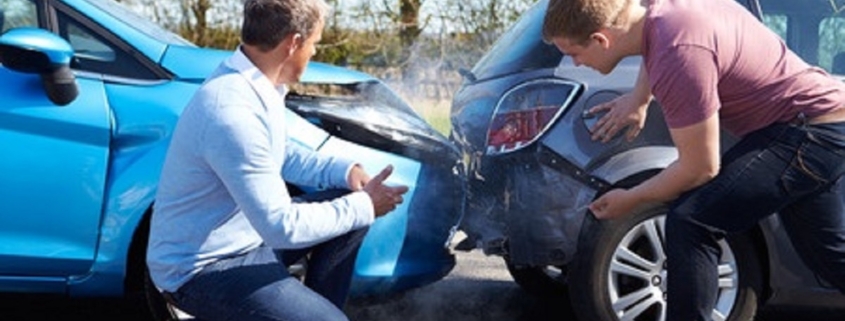How to Avoid Staged Car Accidents
Insurance companies spend a lot of money on car accident claims, and car crashes are estimated to cost upwards of $1 trillion in lost productivity and loss of life every single year. With that much money at stake, it’s no surprise that those looking for a quick buck will find ways to exploit the system. If you get tangled up in someone’s car insurance scam, your company could pay out a fraudulent claim and hit you with an increased premium.
Learn more about staged car accidents, how to avoid them, and what to do if you suspect a scam. Set up a consultation with Haygood, Cleveland, Pierce, Thompson & Short now by calling 334-821-3892.
What is a Car Accident Scam?
A staged car accident occurs when one party (or two parties working together) causes an accident so they can collect a settlement. The insurance company is out whatever they agree to payout, you are stuck with higher insurance bills, and the scammer walks away with a fatter wallet.
These scams are shockingly common, and beyond hurting the innocent drivers they involve, they harm victims of real crashes. With fraudulent crashes costing insurance companies so much money, insurance providers become even more reluctant to pay out a fair settlement to real victims.
Common Types of Staged Car Crashes
There are several types of accidents scammers may stage in order to collect a settlement. Knowing the warning signs can help you make smart choices.
- T-bone crashes. The scammer waits at a quiet intersection for someone to come from the left or right. When they do, they speed through the intersection and hit the other driver. A second party, conveniently watching from nearby, will testify that the scam victim did not have right of way.
- Dual turn lanes. In this scam, the driver utilizes intersections with two turn lanes. They drift into the mark’s turn lane while turning, then claim that the mark actually caused the crash. This is fairly easy to carry out since dual-turn lane intersections often have very narrow lanes.
- Forced rear-end. A driver swerves in front of another driver, then slams the brakes. This gives the second driver no option but to hit them. Since rear-end accidents are almost always the fault of the second driver, the first driver collects a healthy payout.
- Swoop and squat. In this scam, one driver drivers besides the victim. The other gets in front of them and hits the brakes. The victim cannot swerve out of the way to avoid a crash.
- Lane merging. Someone waves through a driver attempting to merge. When the driver begins merging, the other driver speeds up and hits them. They then claim that they never waved the other driver through.
- Wave-throughs. The victim is waiting at a driveway exit to get out into the outside lane. The driver on the inside lane stops to allow them through, pretends to check for traffic in the other lane, and waves the driver through. The victim is then hit by a car in the outer lane.
Avoiding These Crashes
First, drive defensively at all times. Don’t trust that people will always do what makes sense. If someone waves you in, merge or turn slowly so that you can prevent a crash if they suddenly change course. Leave more space than is necessary between you and other cars, which allows you to stop suddenly even if someone swerves in front of you. You may also want to get dashcams for the front and back of your car. If another driver claims that they had the right of way or never waved you through, your dashcam can back your story up.
Protecting Yourself After a Staged Car Accident
If you get a suspicious or “off” feeling after a car accident, listen to your intuition. It’s possible that you are the victim of a staged car crash scam. Talk to a personal injury lawyer about your suspicions and evidence.
Contact the Team at Haygood, Cleveland, Pierce, Thompson & Short for Personalized Assistance
If you’ve been hurt in an accident, it’s time to investigate your claim and find out if you are entitled to compensation. Choose the team at Haygood, Cleveland, Pierce, Thompson & Short. Contact us online or call us at 334-821-3892 to get started.





Leave a Reply
Want to join the discussion?Feel free to contribute!